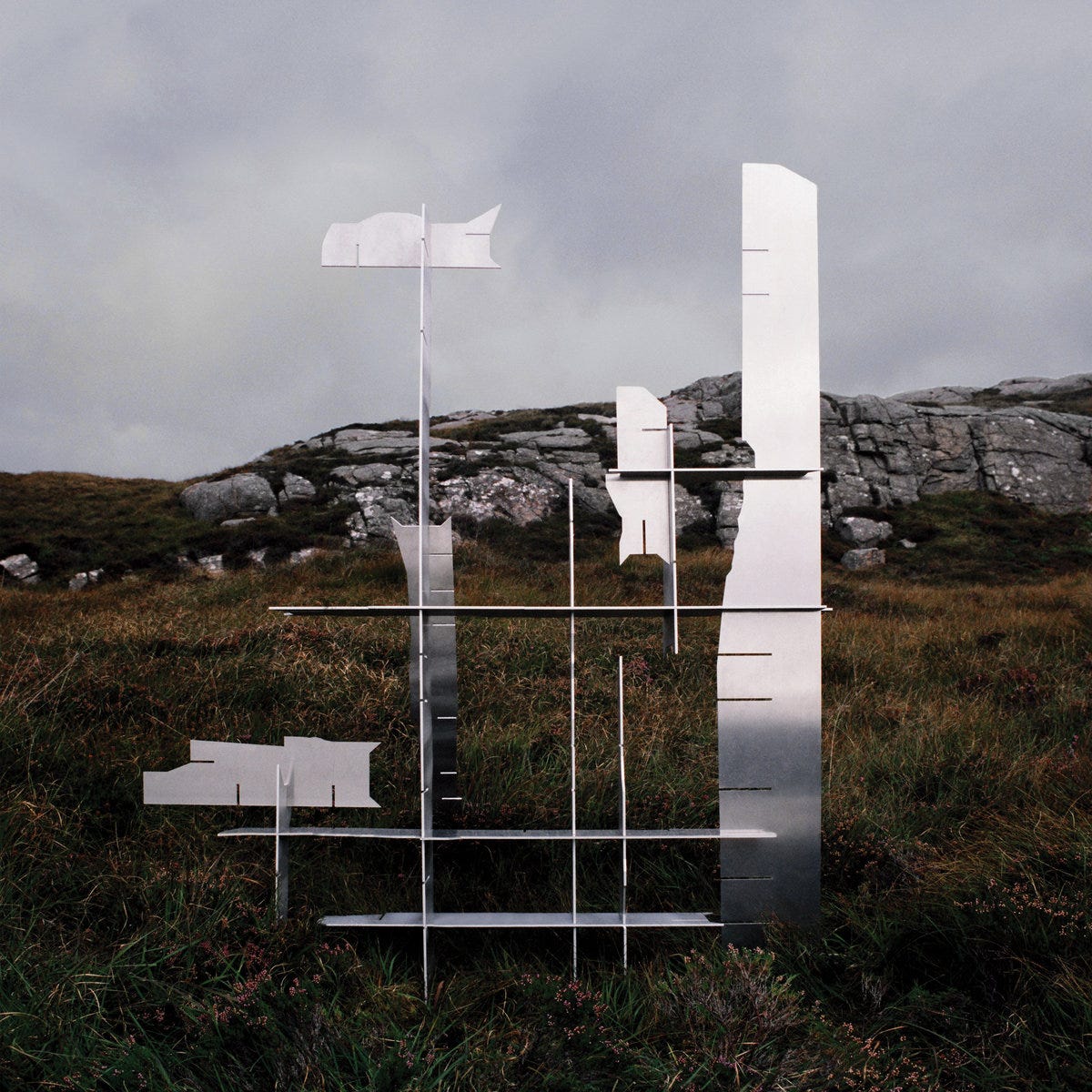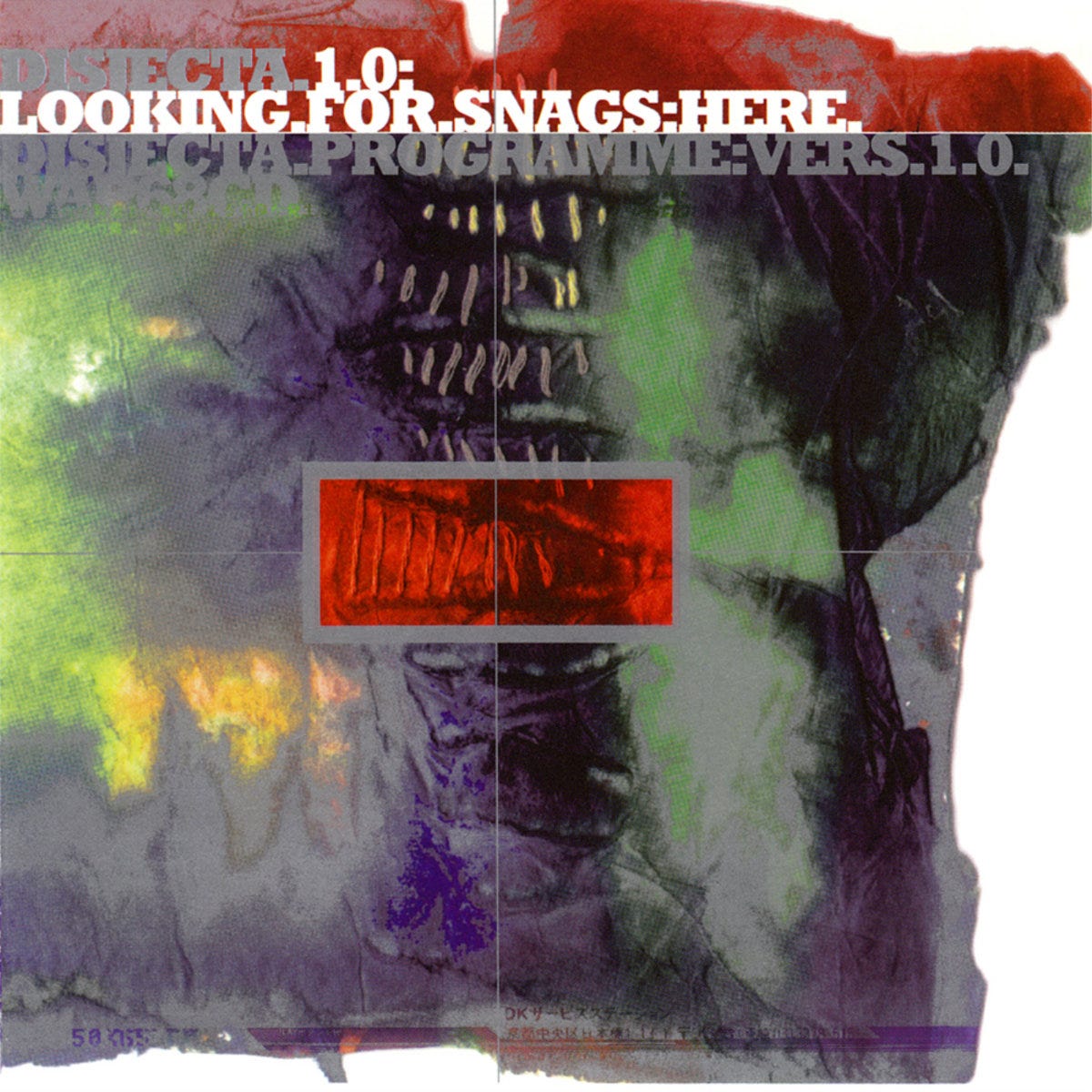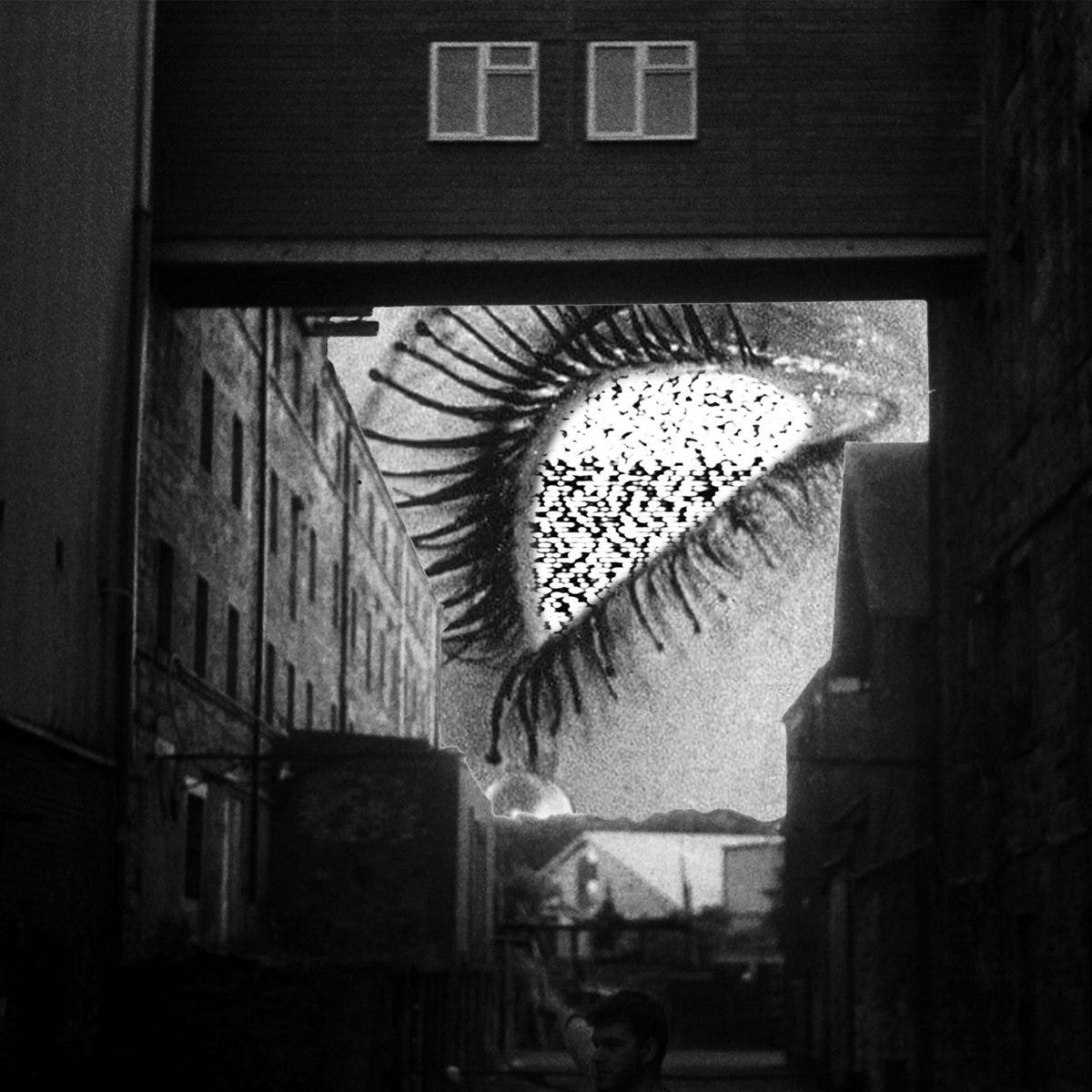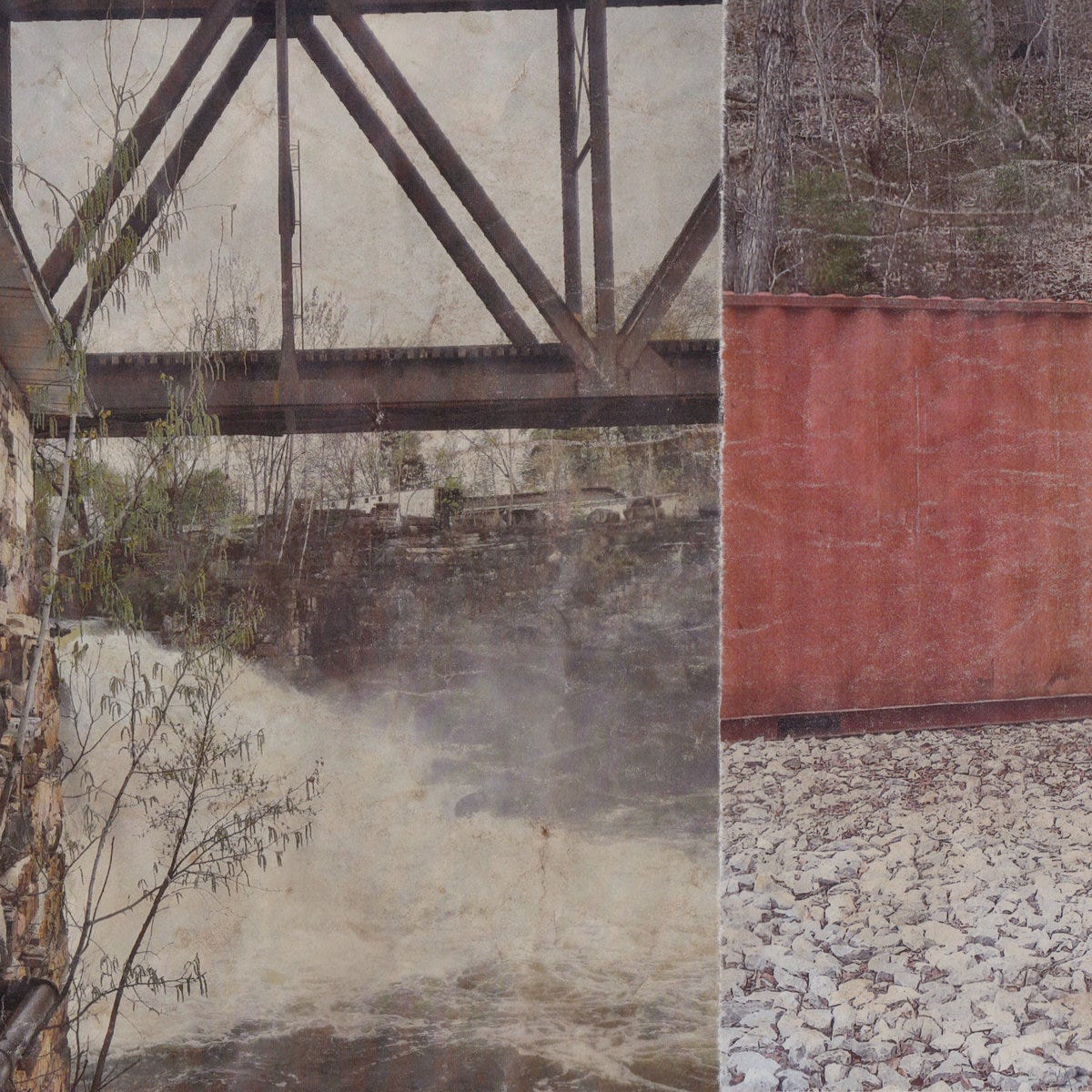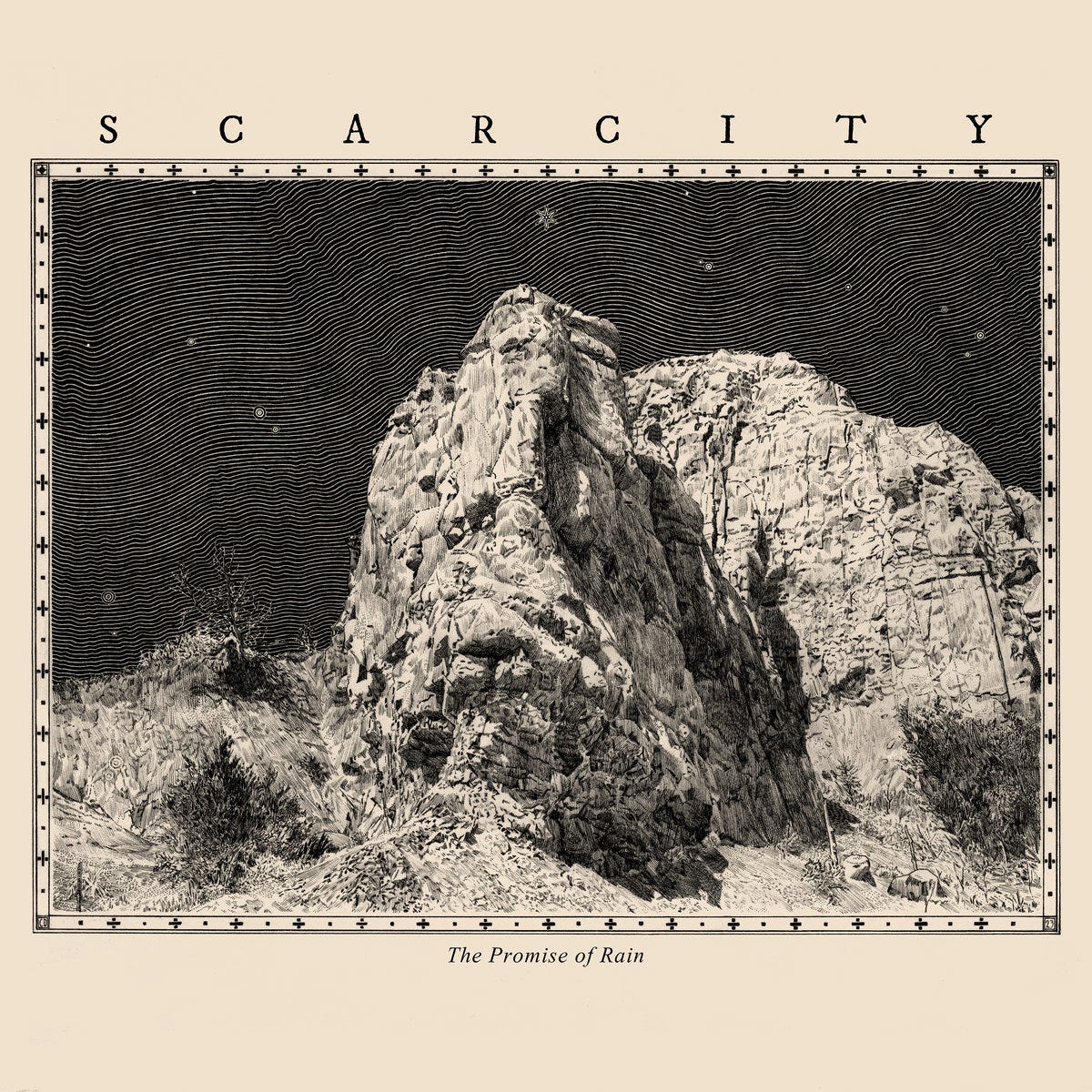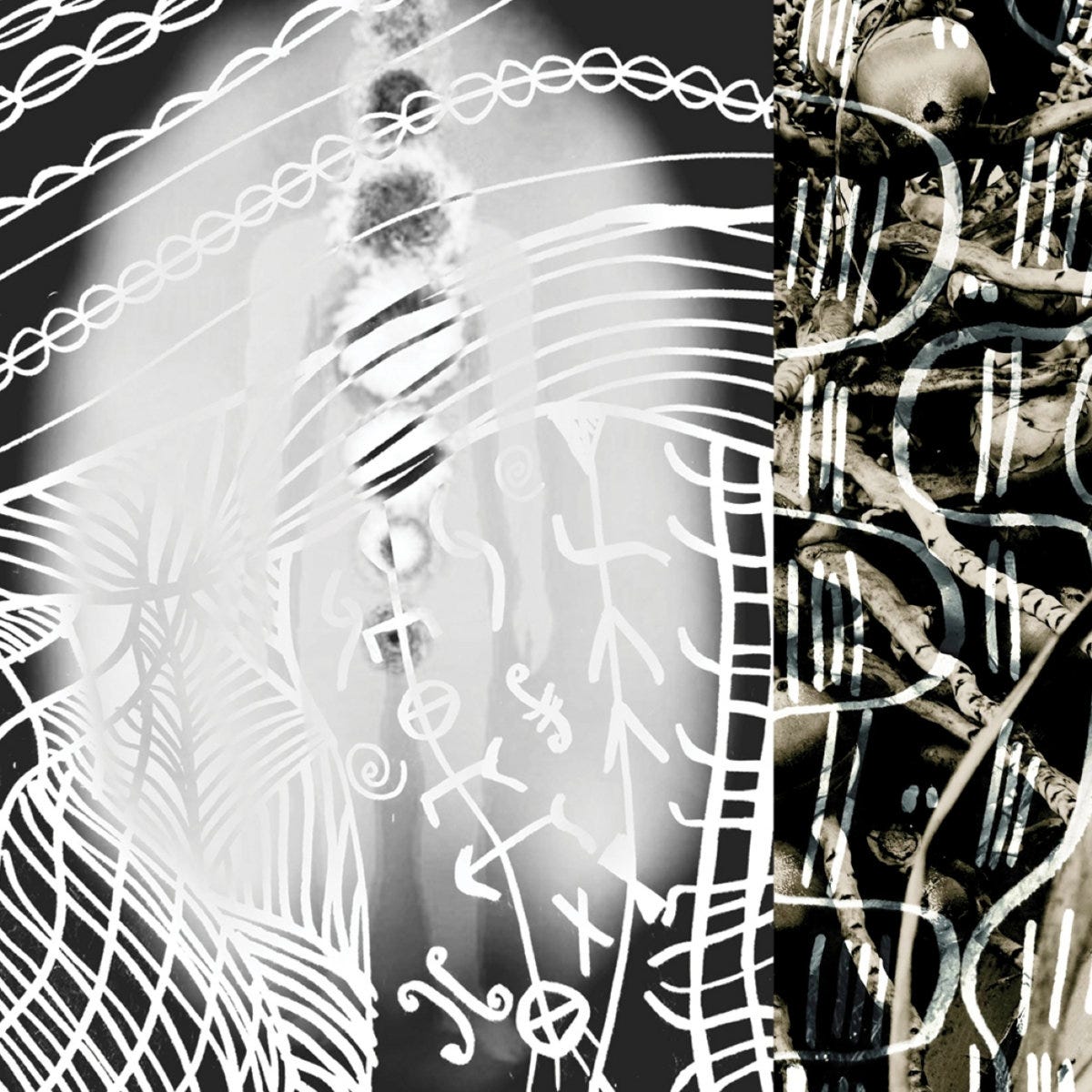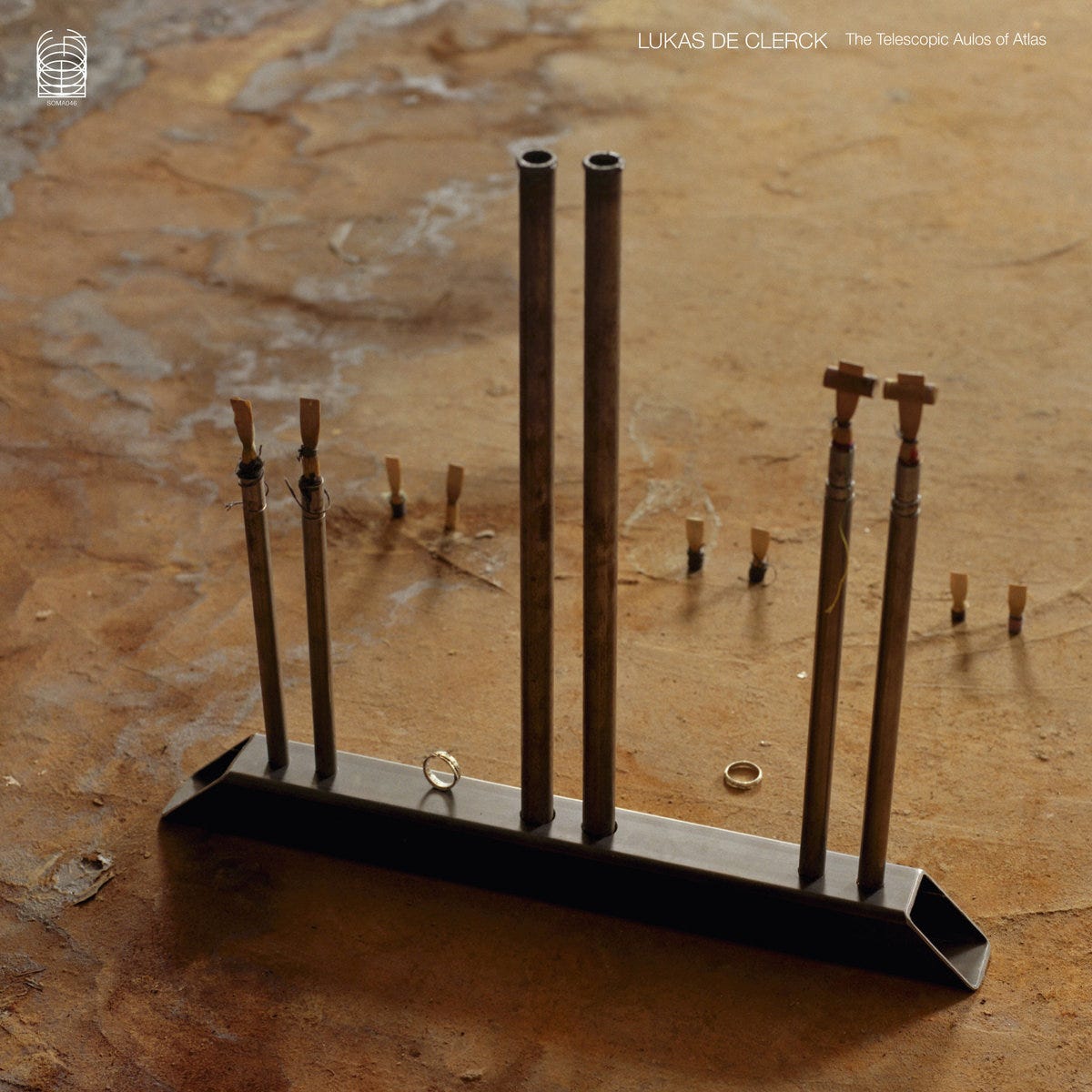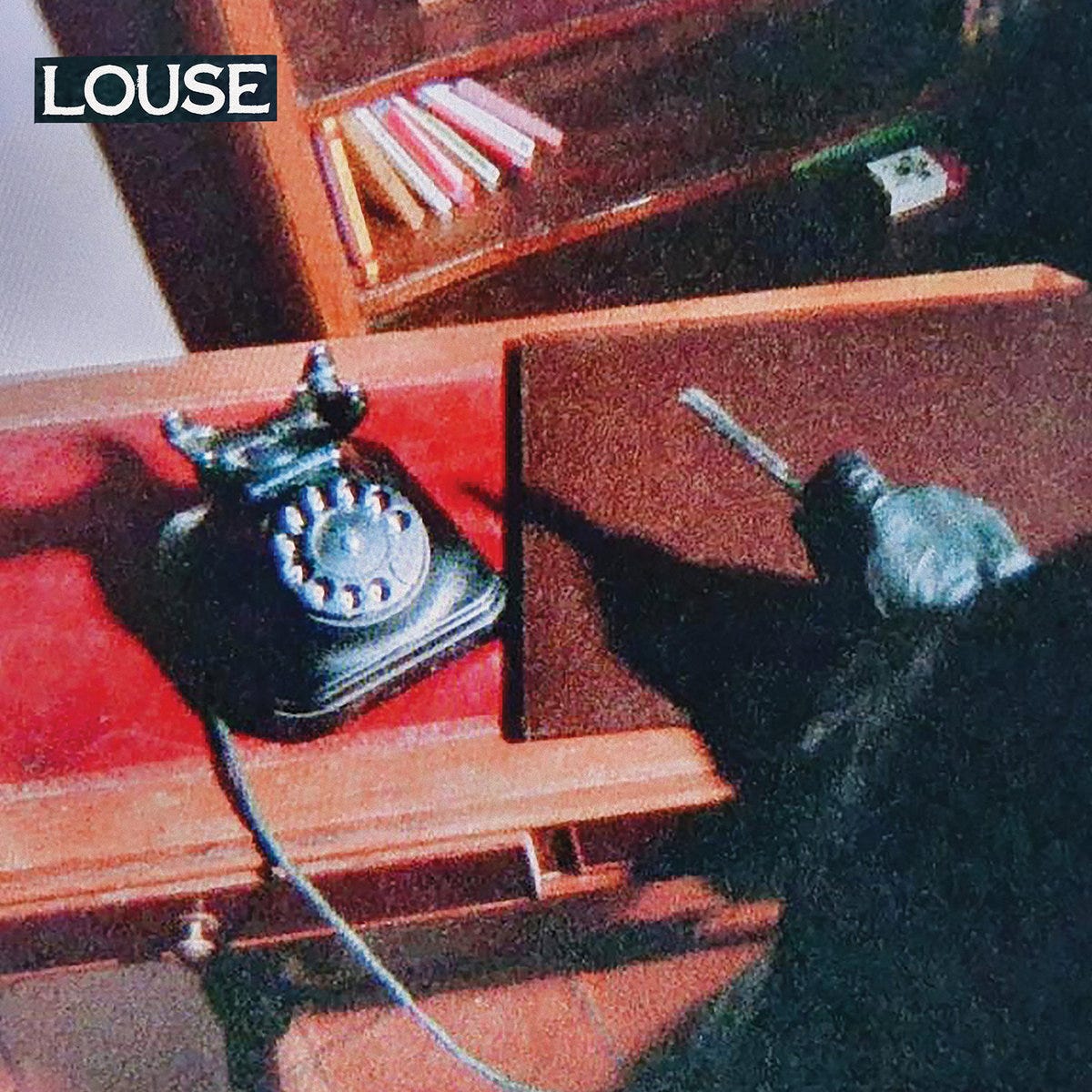UnQuiet #4 (December 2024)
Hebridean slowcore, avant-garde black metal, ancient Greek drone, & more...
Greetings! Welcome to the fourth issue of UnQuiet. I hope you all had a wonderful Christmas and I wish you all the best for 2025!
Thank you all so much for your patience in waiting for this issue! Life has thrown me all kinds of curveballs recently, but I’m slowly getting re-settled and I’m looking forward to writing more frequently again.
This autumn/winter I spent a lot of time bouncing between cities in Italy and Scotland, and the seemingly endless chain of buses, trains and planes involved granted me a good deal of listening time. More often than not I had the feeling that I was listening even more deeply than usual, since I wasn’t being distracted by much else. As a result, I really got to know the following albums inside-out. I’ve also been making more of a conscious effort to check out brand-new releases, so for once there are some (fairly) fresh releases on this list.
And another thing! From now on, wherever possible, I’ll be including a GUEST PICK at the end of each issue. This will give friends, collaborators and readers (i.e. people with much better taste than mine) the chance to spare a few lines about an artist or album they’re particularly passionate about. I’m honoured to announce that my close friend Austin Barnes has chosen the first of these - check out it below!
As always, thanks to every one of you for your continued support.
Happy listening!
deathcrash - Less (2023)
slowcore, post-rock
https://deathcrash.bandcamp.com/album/less-2
This one was recommended to me by my friend Fin, who’s one of the masterminds behind No Soap (a fantastic DIY label and promotions collective based in Glasgow). Recorded on the island of Great Bernera in the Outer Hebrides, Less is a weighty slab of heavy-eyed and melancholic slowcore. Echo-soaked guitars rise and fall to extremes, dragging the loud-soft dichotomy of bands like Codeine into incandescent post-rock territory (the track “Empty Heavy” being a prime example).
Though the deathcrash sound comes across as a paean to the peak of ‘90s slowcore - Less would fit very snugly between your Bedhead, Duster and Karate records - the band’s intriguing deployment of contrasting dynamics and their seamless forays into post-rock, emo and math rock prevent them from sounding like a stale emulation (far from it!).
All in all, a perfect companion on these cold winter nights.
Disjecta - Looking For Snags (1995)
electronica, IDM, ambient
https://warprecords.bandcamp.com/album/looking-for-snags
I came across this album while reading reviews of Seefeel’s new EP Everything Squared (which is also well worth a listen), and I’ve become rather obsessed with it. Disjecta is the IDM-focused solo project of Seefeel guitarist/producer Mark Clifford, and 1995’s Looking for Snags was its inaugural release. From the cavernous, whomping percussive blasts of “Dormin” to the calculated, interlocking grooves of “Skeeze,” Clifford’s deft experimentalism carries the listener through a series of uniquely cold and abstract textures. At times, the beats seem to become completely impersonal, as if the artist wound up a host of mechanical objects and set them off on their own - sometimes faltering, sometimes getting stuck, but always moving forward. This sense of mechanical movement, enhanced with generous helpings of hall reverb, evokes images of vast nocturnal factories and freezing warehouses. “Industrial,” but not in the usual sense.
In many ways, Looking for Snags is in direct and harmonious dialogue with its contemporaries: certain grooves bring Autechre’s Tri Repetae (released the same year!) to mind, while others wouldn’t be out of place on Muslimgauze’s Extreme records. That being said, Clifford’s idiosyncratic experimentalism is always present- avid Seefeel fans will still feel right at home.
FERNS - Fronds in High Places (2024)
nu-jazz, shoe-jazz
https://musicoftheferns.bandcamp.com/album/fronds-in-high-places
I had the pleasure of discovering FERNS when I caught them opening for Omni in Edinburgh a few months back. Hailing from the capital, they’re a self-proclaimed “shoe-jazz” sextet whose tracks fluctuate between crushing, wall-of-sound intensity blasts and delicate, soul-inflected meditations. Fronds in High Places is an endlessly thrilling listen. The opening track “Midori” juxtaposes pounding major sevenths and Slint-adjacent harmonics with hip-hop grooves and saccharine-sweet sax melodies. Later on, the intro to “Ghost Factory” (a personal favourite) hits us with a beautifully punishing, rib-rattling unison riff before dissolving into a deceptively tranquil swirl of sentimental ambience. On “Goblins in the Yard,” the band pull off an impressive genre-defying sleight of hand, immaculately gliding between a wonky haunted-house groove, a transcendent, stadium-ready chorus and a blackened blastbeat-ridden outro.
With every one of the album’s meticulous twists and turns, it’s evident that FERNS are equally comfortable lulling you into a peaceful slumber as they are mercilessly ripping your hi-fi apart; as they themselves put it, their sound deftly “alternates between the mosh pit and the ice pack.” Strap in and enjoy the ride.
JP - field research (2024)
field recordings, electroacoustic, musique concrete, sound collage
https://buriedinslaganddebris.bandcamp.com/album/field-research
This is a delightfully agitated collection of scuffed-up field recordings, wayward tape manipulations and electroacoustic tremors. JP takes quotidian soundscapes (wind, running water, footsteps, etc.) and pushes them into uncanny territory with the help of glitch delays, filters and the occasional blast of corrosive overdrive. As a result, the album toes a fascinating line between passive found sound and deliberate musique concrete: certain sections sound like intimate moments we’re not necessarily supposed to hear, like the few seconds at the end of a phone call after the other person was meant to hang up; at other moments, the recordings are intriguingly warped beyond all normal recognition.
This almost haphazard back-and-forth between the mundane and the eerie - and the erratic absence-presence of the artist - bring the exploratory tape works of composers like Pierre Schaeffer to mind, and prompts us to continually reconsider how first-hand experiences can (and should) be expressed through sound art.
Scarcity - The Promise of Rain (2024)
black metal, extreme metal, drone
https://scarcity-nyc.bandcamp.com/album/the-promise-of-rain
This is a beautifully clamorous avant-garde black metal album which is as adventurous as it is bleak. The opening throes of opener “In The Basin of Alkaline Grief” immediately catapult the listener into a shimmering maelstrom of blastbeats, infernal growls and interweaving guitars that sound exactly like a broken fire alarm. This is the perfect start to a 40-minute onslaught of grim energy: over the course of the remaining 5 tracks, endless tangents of guttural noise burst forth, each one effortlessly erupting into the next in a hazy vortex of nervous catharsis. Rarely taking a second to breathe, the band erratically shift gears as they pummel through contrasting timbres: the title track sees them tremolo-pick their way through some classically eerie Norwegian-style black metal melodies; the jagged, syncopated riffs of “Scorched Vision,” on the other hand, remind me of the dissonant stylings of Converge and Liturgy; and the comparatively straightforward rhythmic drive of “Venom & Cadmium” wouldn’t be out of place on a Wolves in the Throne Room record (if it wasn’t for the the novel inclusion of some rather charming gang vocals).
Throughout all of these perfectly-calculated twists and turns, Scarcity continually prove themselves to be masters of dissonant harmony and unconventional techniques. It’s more than evident that guitarist Brendon Randall-Myers’ years of prior experience as an avant-garde composer and performer (most notably as a key player in the Glenn Branca Ensemble) provide a solid foundation for this project. The band clearly revel - and flourish - in creating walls of blissful, guitar-strangling cacophony, and it’s an absolute joy to be on the receiving end.
NKISI - The Altar (2024)
electronica, techno, EBM, afrofuturist doomcore
https://nkisi.bandcamp.com/album/the-altar
“Visionary spiritual Afrofuturism for a new jilted generation.
Deep cuts for your soul, mind and body in a confusing world.”
NKISI, AKA Melika Ngombe Kolongo, has spent the past decade joyously interrupting and contaminating traditionally rigid club genres with enchanting rhythms derived from traditional Congolese musical traditions. Her latest offering, The Altar, is a particularly captivating result of this process. Though all of the tracks are heavily grounded in 90s EBM and industrial techno, their machine-like foundations are complemented - elevated, even - by overlaid hypnotic bursts of syncopated percussion.
The self-titled lulls us into a false sense of security with around 4 minutes of straightforward four-to-the-floor kick drums, which are suddenly broken, twisted and turned inside-out by a restless combo of polyrhythmic hats and snare hits. This failsafe formula crops up again and again across the subsequent tracks: NKISI lets straightforward club patterns play out just long enough for us to feel comfortable, and then she ingeniously stretches them out, moving their repetitive pulses to the background and forcing them into playing supporting roles in more expansive and exploratory rhythmic wholes.
Between the ghostly, trance-like throb of “NziNzaNzo,” the uneasy, acid-inflected romp of “Python & Prophecy,” and the full-bore braindance of “A Path Appears,” The Altar emerges from the darkest corner of the club and shines a pure light on what’s to come. A richly inventive offering from a truly boundary-pushing artist.
Lukas De Clerck - The Telescopic Aulos of Atlas (2024)
drone, free improv, music archaeology
https://lukasdeclerck.bandcamp.com/album/the-telescopic-aulos-of-atlas
Lukas De Clerck is a Belgian researcher whose recent work has focused on the archaeological reconstruction of the aulos, an ancient Greek double-reeded wind instrument whose exact sound and uses are shrouded in mystery. His musical output is characterised by painstaking archaeological research on one hand, and by idiosyncratic sonic exploration on the other (as he continually experiments with the instrument’s unique timbral potentialities). Elaborating upon territories previously explored on 2022’s MILLI MILLE, The Telescopic Aulos of Atlas sees De Clerck push the instrument’s boundaries even further, making it squeal, rattle and hum to deeply eerie effect.
The historical importance of De Clerck’s research aside, the album is a stellar example of modern drone composition in its own right. Overtones uneasily shift and overlap, creating uniquely dark, reverberating pools of sound. Some parts remind me of Phill Niblock, in the way that wayward voices collide and push against each other to generate layers of pulsing tone clusters.
De Clerck makes each of his instruments by hand, and listening to this record it’s clear that he shares a particularly profound relationship with them. In fact, it’s clear that he sees the aulos as an active, collaborative object which springs to life through the act of being played. In his own words:
“The morphology of the aulos is defined by its reeds. The tubular memory inside the plant's fibre will ensure it closes and opens naturally, like the mouth that blows breath inside. The reeds are the core, the sound source—the naked instrument. They behave like two oscillators, bending high-pitched notes into beatings. The pipes are a context, a channel for the sound. They create a narrative.”
While it’s maybe a bit of a lazy cliché, it’s impossible not to think about the Eleusinian Mysteries while listening to this one: the chasmic bass tones and sinister screeches immediately suggest darkened temple rooms, flickering candles and esoteric rites. Pick up your torch, light some incense and head on in.
Louse - Creep Call (2024)
noise rock, punk, scum rock
https://lousescum.bandcamp.com/album/creep-call
I came across Louse in October, when I caught them playing alongside fellow noisemakers DIALL and C.H.O.U. at a gig in Edinburgh. Organised by Braw Gigs, it was a brilliantly bizarre matinee show: a boatload of enthusiastic punks crammed into a tiny, sweaty room, thrashing around and spilling pints at 2pm on a Saturday. What more could you ask for?
Though all three of the acts were great, Louse played a particularly fierce set, bludgeoning the crowd with razor-sharp power chords, bulldozing slide bass and some of the most filthy, tortured growls I’ve ever had the pleasure of hearing. Creep Call is their most recent offering, and it’s a wild ride. Most of the tracks are built around a single repeating riff which is ritually beaten under a bed of utterly ghastly vocals. It’s a hard and uncompromising slew of distortion and adrenaline that leaves you wanting a shower (in a good way!). The influence of Brainbombs is pretty evident, but Louse have a melodic ear that equally aligns them with the likes of Flipper or The Fall. Honestly, Creep Call has some rather catchy moments: “Worm” and “You Don’t Eat The Bull” have been going round in my head for weeks.
All together now: BLEUUUUUGHH!!!
Blawan - BouQ (2024)
UK bass, IDM, techno
https://blawan.bandcamp.com/album/bouq
Blawan’s envelope-pushing experiments with club music never, ever disappoint. BouQ, his latest EP for XL, is a collection of four acerbic dance tracks which invariably fizz with noise and hit like a freight train. It’s produced extremely well, somehow treading a line between ultra-shiny, pop-centric atmospheres and gritty, lo-fi industrial madness. The whole release is scatter-brained in the best way possible: you barely feel comfortable with a groove before something new and disruptive blasts in. This gives the release a sense of urgency and exploration that keeps it fresh upon every listen.
Highlights include “Fires,” a slow-burner which rides along on warped vocals and glassy synths, and the title track, which perfectly marries stuttering, ice-cold lead lines with some gloriously nasty sub bass. I’m always impressed by how well Blawan manages to craft straight-up club bangers out of unhinged studio experiments (and vice versa), and BouQ is testament to that rare talent. Everything shakes with static and unpredictability, but you never stop tapping your foot. Just the way I like it.
This week’s GUEST PICK was chosen by Austin Barnes (AKA Berlin Anatomy, Narco State Machine, DJ Belt & Road Initiative, et al.)
|||||||||||||||||||| (“Barcode”)
https://barcodenoun.bandcamp.com/music
electronica, braindance, IDM, breakbeat
‘When close friend and collaborator Ollie Turbitt asked me to recommend an album for his next newsletter, I realised I’d not listened to anything new or good in several years.
In about twenty seconds and completely by accident, I discovered ||||||||||||||||||||, pronounced “barcode”, a German IDM act who’s never released an album (or even an EP) over their entire six year career, preferring instead to drop a stream of lovingly engineered singles, each published with a unique blank cover. Annoying!
I’m happy to have found a recommendation that’s good and makes me look interesting, but in reality my music taste has regressed to when I was 16 years old and fossilised there.
I only listened to one song when I was 16: “Yoshi City” by Yung Lean.
Ollie’s a great writer, particularly when he’s describing music (where I would just call something “good” he would call it “endearingly polyrhythmic”; where I would call something “bad” he would call it “harsh noise”.)
But since I actually get paid to write, I thought I’d issue a challenge of my own, since it’s really difficult when writing about music to avoid annoying or endlessly abused terms (see: “schizophrenic” and “pulsating”, respectively). Here’s my challenge for Ollie: Write an entire newsletter without the following terms: “atmospheric”, “amorphous”, “angelic”, “delicate”, “dreamlike”, “ethereal”, “machine-like”, “mechanic”, “mechanical”, “mind boggling” “percolating”, “pulsing”, “pulsating”, “polyrhythmic”, “rhythmic”, “robotic”, “sparse”, throbbing”, “undulating”…’
Austin Barnes is a London-based writer and musician, whose oeuvre may be described as atmospheric, amorphous, angelic, delicate, dreamlike, ethereal, machine-like, mechanic, mechanical, mind boggling, percolating, pulsing, pulsating, polyrhythmic, rhythmic, robotic, sparse, throbbing and undulating. Check out his releases on Dead Hound Records.
If you’d like to check out any of the releases mentioned above, I’ve compiled links to them into a handy list on Buy Music Club.
A quick note about internet radio:
If, like me, you’re always on the hunt for interesting music, please consider supporting the invaluable work done by radio stations such as:
EHFM (Edinburgh)
Subcity Radio (Glasgow)
Lahmacun Radio (Budapest)
Subscribing to UnQuiet is completely free. However, if you’d like to support my work in a more material way, consider buying me a coffee!
Ollie Turbitt is a Scottish-Italian musician, sound artist, and audio engineer based in Trentino, Italy. He runs the experimental net label Dead Hound Records & works in freelance mixing/mastering.
https://ollieturbitt.tumblr.com
ollie@turbitt.co.uk




